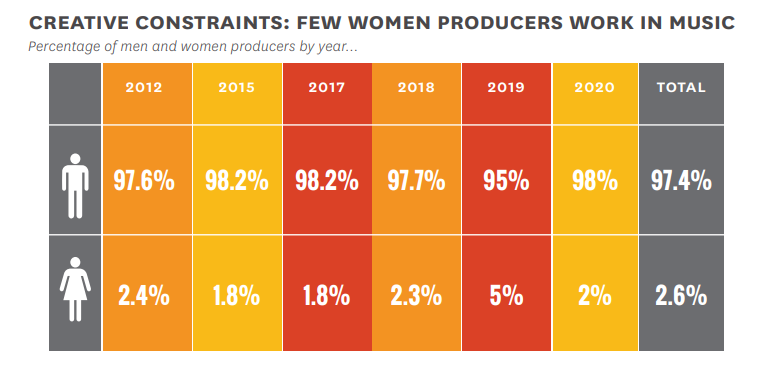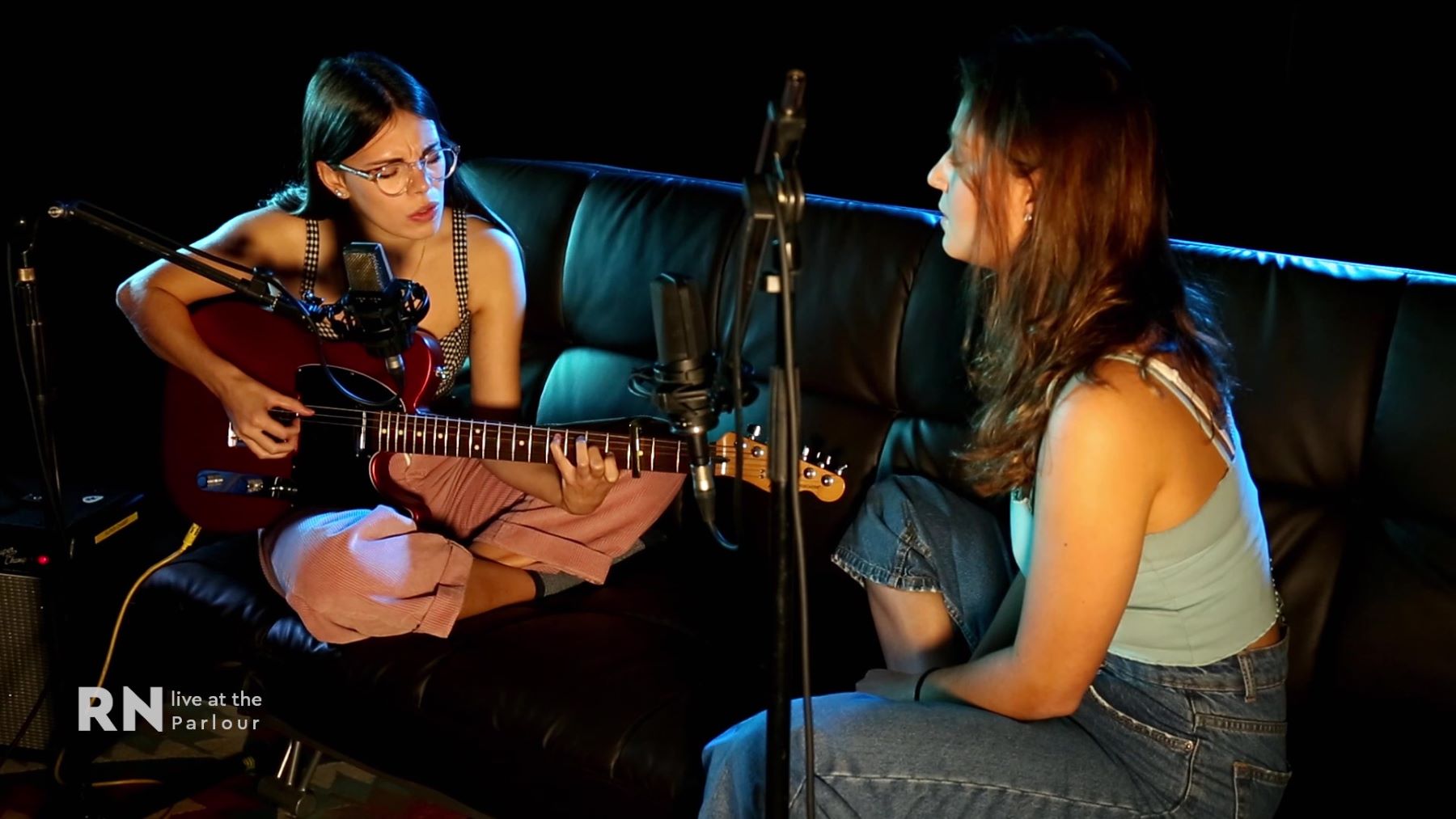What’s being done about the lack of female music producers in 2022?
Since 2019 the number of women and gender minority producers has dropped from 5% to 2%. Why is it still rare to see a non-binary or woman music producer?
The world is missing out on incredible music producers simply because they happen to not be men. Gender inequality in the music industry is still a huge issue in 2022, especially when it comes to music production.
Only 2.6% of producers are women or non-binary. It’s a problem in every other part of the music world, too – the Women in Jazz organisation, for example, was launched because non-men make up only 5% of all jazz instrumentalists in the UK; organisations are pushing for a 50/50 gender split at music festivals.
When female music producers and songwriters find success they often feel they have to justify their song credits. This was never more glaringly obvious than in October 2021, when actor Jameela Jamil addressed the online reaction to her producer and songwriting credits on James Blake’s latest album, Friends That Break Your Heart. Despite the fact both Jamil and Blake are professionals in the music business, the implication was Jamil only worked on the record because they’re romantically involved – and her skills were doubted, because she is a woman.
An incredulous or patronising reaction is a common response when the words “female” and “producer” are uttered within the same breath. As Jamil pointed out, it is just as likely to be a woman making those judgements than a man. Either way, it is a misogynistic response.
Why aren’t there more women producers?
Unconscious bias means women are treated differently to men in recording studios and other music settings. The unspoken belief that music technology is meant for men runs deep. When so few women are seen in music production settings, the assumption is that they must be a bit rubbish.
The stagnant growth of female producers may have been worsened by the coronavirus pandemic – women have disproportionately shouldered childcare responsibilities during lockdowns – but the number of non-male people involved in music production was a tiny percentage to begin with.

Non-male producers are often addressed in a condescending tone, when they’d really rather gender have nothing to do with it. Many would rather just be referred to as simply a producer rather than immediately singled out because of their gender.
“Female” is not an adjective. A producer is a producer regardless of pronouns, not to mention it being uncomfortable for those uneasy with the term “female” in the first place. As Jamil implied, it shouldn’t matter who you are, as long as you’re good at what you do.
Learning music production is a long and difficult process. There’s often an assumption the male-dominated music studio is too technical a space for women and gender minorities – in the same way science and sports were historically thought to be for boys, whilst girls would be better off quietly reading a book.
You’re much more likely to stumble across YouTube music production tutorials featuring men, and these little things matter. If everything you see convinces you that a space isn’t meant for you, it takes a lot more drive and determination to push through and be successful.
Opportunities for female music producers
So how can things be improved? Like so many crusades for change, education is the first step. In order to increase the number of women and gender minorities not only getting involved in music production but sticking with it, the space must be made less intimidating and inclusive. That means men welcoming non-men into a traditionally male space, and women not falling into the patriarchal trap of feeling threatened or jealous of other producers.
Organisations like FEMME HOUSE and We Are Moving the Needle run courses and workshops specifically for non-male participants and have also built supportive communities for collaboration and encouragement between new producers.
Just because a producer happens to not be male, doesn’t mean they can’t be successful. More talented women and non-binary producers should be making a career out of their passion and skill. To get started, they need to surround themselves with positive people and inspiring mentors.
For as long as producers are singled out for their gender, the focus should be on lifting each other up. So, addressing all woman and non-binary aspiring music producers – don’t be afraid to reach out for help and advice. Ask questions and seek out inclusive spaces – and help encourage other non-male music creators.
Get inspired by looking at these initiatives championing music by women and non-binary creators:
